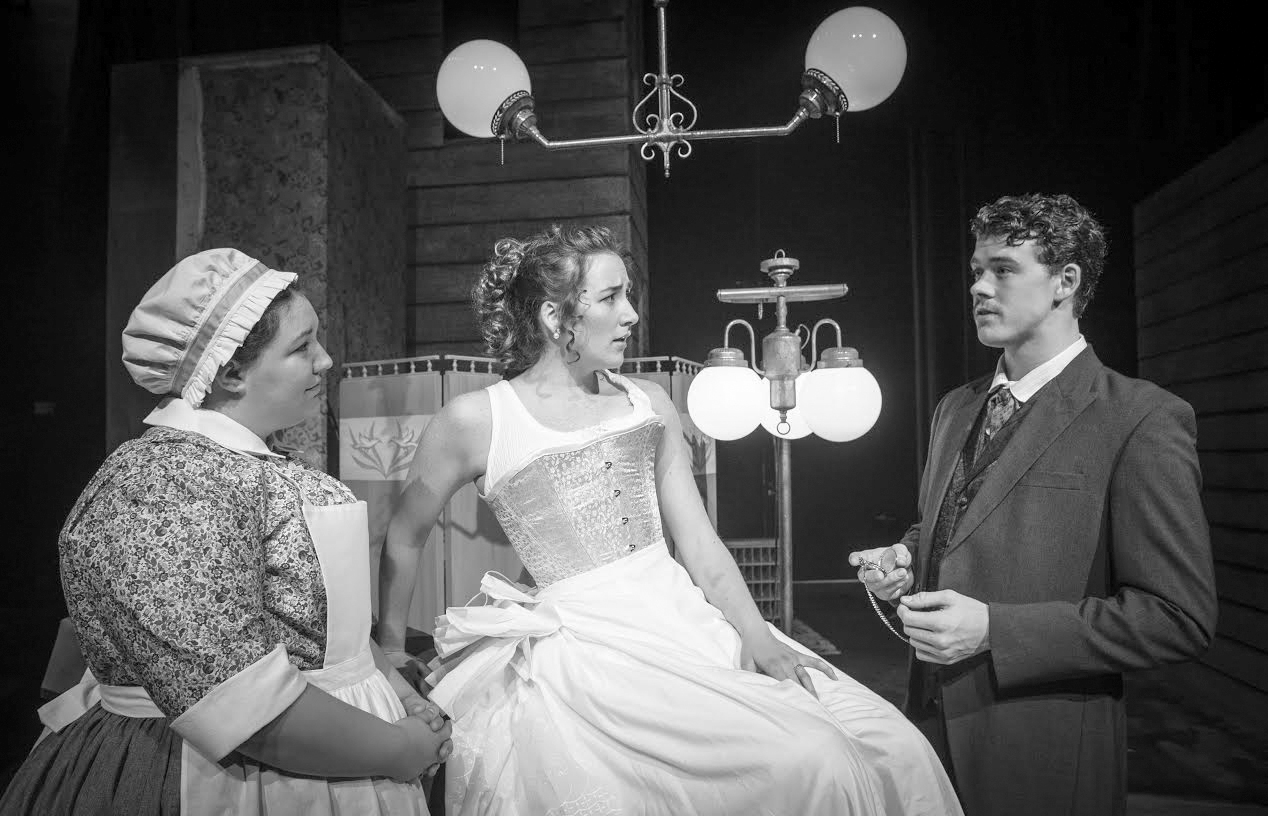Brandon Varner – Features Editor
features@insideuab.com
Students prepare for “In The Next Room” production (Photo courtesy of Shannon Thomason).
It may seem controversial to produce a play that focuses heavily on the usage of vibrators. However, according to director Jack Cannon, these types of bold issues are not out of order for the UAB Department of Theatre. Sarah Ruhl’s play “In The Next Room (or The Vibrator Play)” gives a peek into the life of a couple struggling with issues of marital intimacy.
“It’s sort of about a male dominated society repressing men themselves,” Cannon said. “Telling them, this is how men have to behave.”
Cannon, along with the rest of the department, has a history of putting on plays that bring difficult issues right to the UAB audience. The department began this season with a production of “Clybourne Park,” a prequel/sequel to “Raisin in the Sun” in which a white family is cautioned against selling their home to a black family and ruining the neighborhood. Then, 50 years later, a black family is cautioned against selling their home to a white family and gentrifying the neighborhood.
“In The Next Room” is another play that keeps the issues in front of the audience.
At the beginning of the play, a woman introduces her baby to the brand new electric lamp. The opening to the play is not only about the past and future in terms of technology, but also in terms of what marital love had been before the 1880s, and what it became afterward. In the play, Dr. Givings is a doctor that trades in the practice of treating “hysteria,” a disease that had been a mental disorder attributed to women since 1900 B.C., according to the journal “Clinical Practice & Epidemiology in Mental Health.”
The play is set in the 1880s, which means that there were almost 1,000 years of supposed medical knowledge backing up the doctor’s practice at the time. Givings, like many men of the time, has no concept of the duties of a man as a loving provider. However, his whole business is the trade of providing orgasms to cure women from their long “substantiated” medical illness.
“The play is about the wife’s action of trying to get her husband to open up,” Cannon said. “He’s got the ability to heal women through what we today call an orgasm, but he is unable to be intimate with his wife.”
His inability to grasp intimate contact with his wife as a source of pleasure is one of the main conflicts of the play. It’s never questioned that Givings loves his wife deeply, but it’s just a matter of getting things to sync up.
“There will always be an argument between what men think love is, and what women think love is,” Cannon said. “We think differently, but that doesn’t mean that we can’t have a marriage of the two.”
The play explores these themes of intimacy, but overall it’s a play that is about love; love for others, and oneself.
“It’s important to know, even today, you’ve got power over your own body,” Cannon said. “Everyone should have power over their own body and what they know they can do with it.”
“In The Next Room” runs from Feb. 18-22 at the Sirote Theatre
